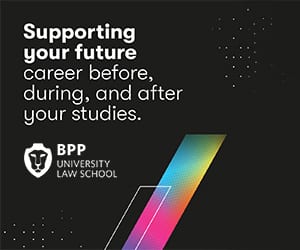
Feb 10, 2018
Written By Jack J Collins, Editor, AllAboutLaw.co.uk
AAL Commercial Awareness: Image Rights, Jose Mourinho and Sponsorship
Feb 10, 2018
Written By Jack J Collins, Editor, AllAboutLaw.co.uk

With Jose Mourinho on the verge of signing as Manchester United manager last week, a bizarre moment occurred – he could not sign with the Manchester giants until his image rights were sorted out.
It emerged that Chelsea have owned the Jose Mourinho name and signature as a trademark for the past ten years, and currently are contracted to earn it for ten more. As such, they are in a position to demand compensation from United for the use of the name.
They have registered the name for use against an exhaustive list of items, including umbrellas, technology, clothing and jewellery. What this means is that if United were to use Mourinho’s name on any of the products Chelsea have the rights to, Chelsea could sue them every single time.
Sports lawyer Carol Couse, from Mills & Reeve, was quoted on BBC Sport as saying that it was “really unusual” for someone not to own the trademark to their own name, but is their precedent for this?
The Rooney Case
In 2010, a court case involving Manchester United captain Wayne Rooney was brought to light, which featured the ideas of image rights heavily. In 2006, Rooney signed a contract with Proactive management company allowing them to use his image rights.
The court defined image rights as follows:
“Image Rights means the right for any commercial or promotional purpose to use the Player’s name, nickname, slogan and signatures developed from time to time, image, likeness, voice, logos, get-ups, initials, team or squad number (as may be allocated to the Player from time to time), reputation, video or film portrayal, biographical information, graphical representation, electronic, animated or computer-generated representation and/or any other representation and/or right of association and/or any other right or quasi-right anywhere in the World…”
In Rooney’s case, leaving his management company four years into an eight year contract created a chasm, whereupon the company demanded millions in compensation for the rights they had bought.
However, the High Court came down in Rooney’s favour, saying that it was unfair and a breach of regulations for the company to tie Rooney to a deal that was longer than two years. He paid the company just under £100k, rather than the millions they were demanding.
So what can Mourinho do?
Rooney’s case was special in that he signed it with his wife and as a singular agreement, so Mourinho will not have the same luck in being able to wriggle out of it. As such, there are a few possible options.
- United simply do not use Mourinho’s name on any product that Chelsea bear the rights to.
- United pay Chelsea for a license to use the trademark on their club merchandise (it is widely believed this is what Inter Milan and Real Madrid did in their periods with the Special One at the helm.)
- United ask Mourinho if he will buy the trademark back off Chelsea.
- United challenge the tradaemark in a court case if they feel that it has not been used properly by Chelsea.
Is that it then?
Well, not quite. There’s also a small issue regarding the personal sponsorship deals that Mourinho has, especially one regarding United’s shirt sponsors – Chevrolet. Mourinho has a personal deal with Jaguar which may conflict with the club sponsorship.
Whilst that might be a problem, it will not have held up the deal – it might be a case that United pay Mourinho to buy out the deal early.
The whole saga marks the changing nature of trademarks and copyrights in UK law, and shows just how careful those in the public eye have to be about where they are signing and what they are signing for.
The fact that Mourinho appeared to have no idea about the trademark or why the deal was stalling is indicative of the complications that can occur when the small print isn’t read properly and in the financially driven world of corporate sponsorship, small mistakes can lead to big costs.
Commercial Insights
- 3D printing and the future of intellectual property
- A new era for the legal industry: how LegalDefence is making law more accessible
- AAL Commercial Awareness: British EU Emigrants lose supreme court ruling
- AAL Commercial Awareness: Jonas Gutierrez, Newcastle United and disability discrimination
- AAL Commercial Awareness: Poppers, decriminalisation, and the legal highs ban

